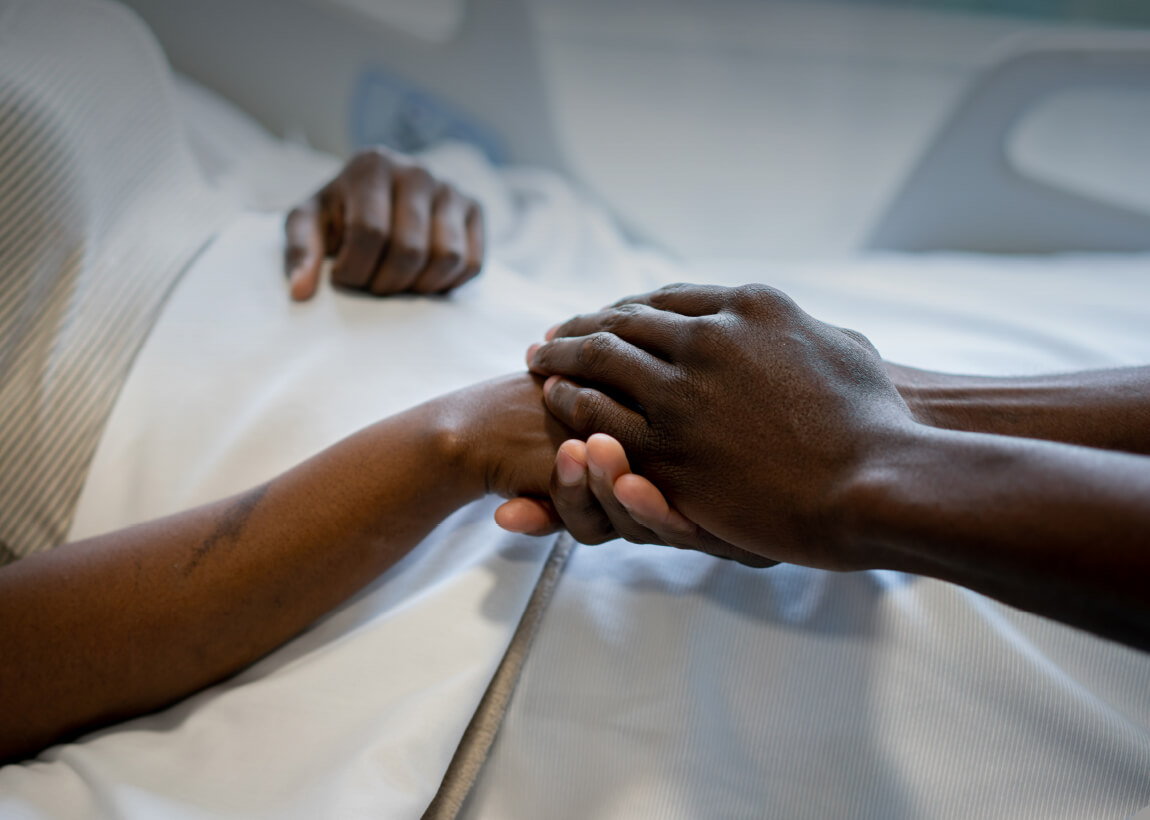Sickle cell disorder (SCD) is a lifelong genetic disorder named for the sickle-shaped red blood cells it causes. These fragile red cells break down easily, causing anaemia, and also get stuck in the veins, stopping normal blood flow. It is a chronic, painful, life-threatening illness that affects millions globally – something that King’s Health Partners is committed to changing.
SCD predominates in people with an African or Caribbean family background, but those of Hispanic, Mediterranean and Middle Eastern heritage can also inherit the faulty gene. In countries with poor resources, more than 90 per cent of children with SCD will not live to adulthood, and it is not uncommon for families to lose multiple children to the disorder. In the UK alone, there are approximately 15,000 people with SCD, three-quarters of whom are in London. While the majority of those in the developed world survive to middle age, they still experience very serious effects of the disorder, including pain.
Severe and unpredictable episodes of life-threatening pain, also known as a ‘crisis’, are a hallmark of the disease and can last for hours or days. These crises can damage bones, muscles and organs such as the liver, kidney, lungs, heart and spleen. Those affected by SCD are also at risk of infections, joint pain, stroke, anaemia, blindness and sadly, for many, early death. From childhood onwards, many patients spend extended periods in hospital.
Henrietta, receiving care at Guy’s Hospital, shares:
‘The only way I was able to describe the pain as a child was that my bones were being crushed into powder. That is what it felt like. I don’t want anybody to grow up how I’ve grown up – in pain.’
However, the tide is turning. King’s Health Partners, comprising King’s College London and three NHS Trusts – King’s College Hospital, Guy’s and St Thomas’, and South London and Maudsley – is leading the way in sickle cell treatments. We are also building on existing work with plans for a new Sickle Cell Centre Excellence where we will develop life-changing treatments and work towards the eradication of SCD.
The only way I was able to describe the pain as a child was that my bones were being crushed into powder. That is what it felt like. I don’t want anybody to grow up how I’ve grown up in pain.
HENRIETTA
Professor Jo Howard, Consultant Haematologist at Guy’s and St Thomas’, says, ‘Our vision is of a sickle service of clinical excellence. We will provide high-quality clinical care, research excellence and innovation, as well as education and training. We hope to improve care for patients who live within our network, across the UK and also globally. This is a global disorder and we want to provide new therapies and curative therapies to patients around the world.’
This is an important time for sickle cell; persistent health inequalities and the need to offer the best quality of care equally to all patients has become increasingly pressing. King’s Health Partners is determined to reduce inequalities and deliver better healthcare for all. The King’s Health Partners Sickle Cell Centre of Excellence is poised to make major breakthroughs in gene editing, disease modification, and optimal preventative management techniques. Philanthropic support will enable this research, as well as enhancing our services to care for the body and mind, and training health professionals across the world. Donors, big and small, can help turn the tide on this cruel disorder. Together, we can build a future that will free those affected by sickle cell from a life of pain, the impact of which cannot be underestimated.
This is a global disorder and we want to provide new therapies and curative therapies to patients around the world.
PROFESSOR JO HOWARD
